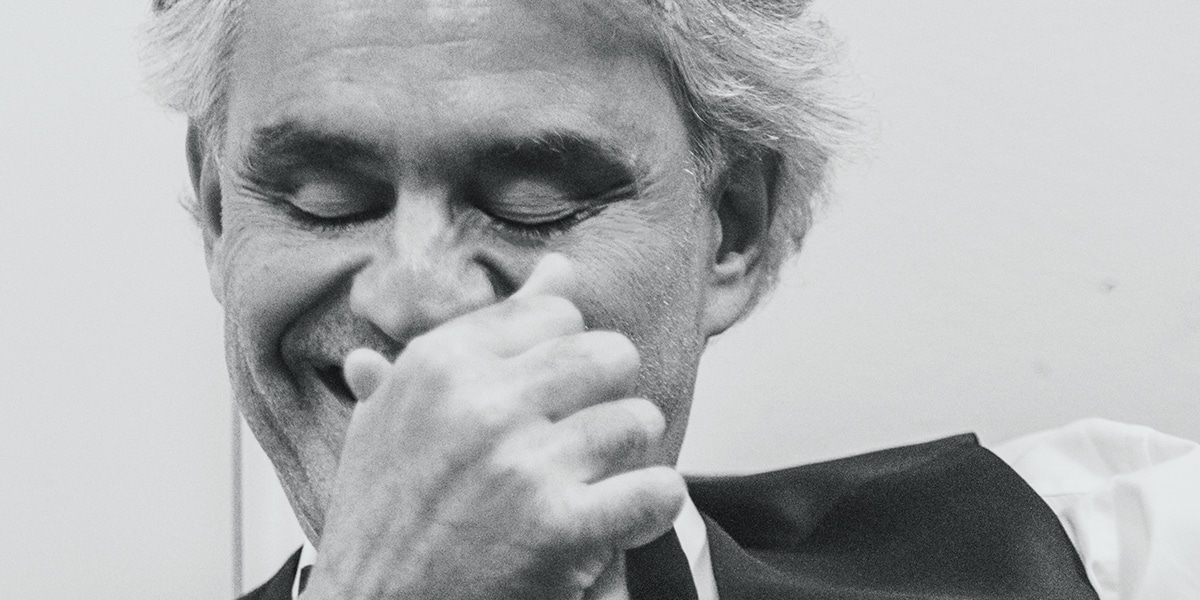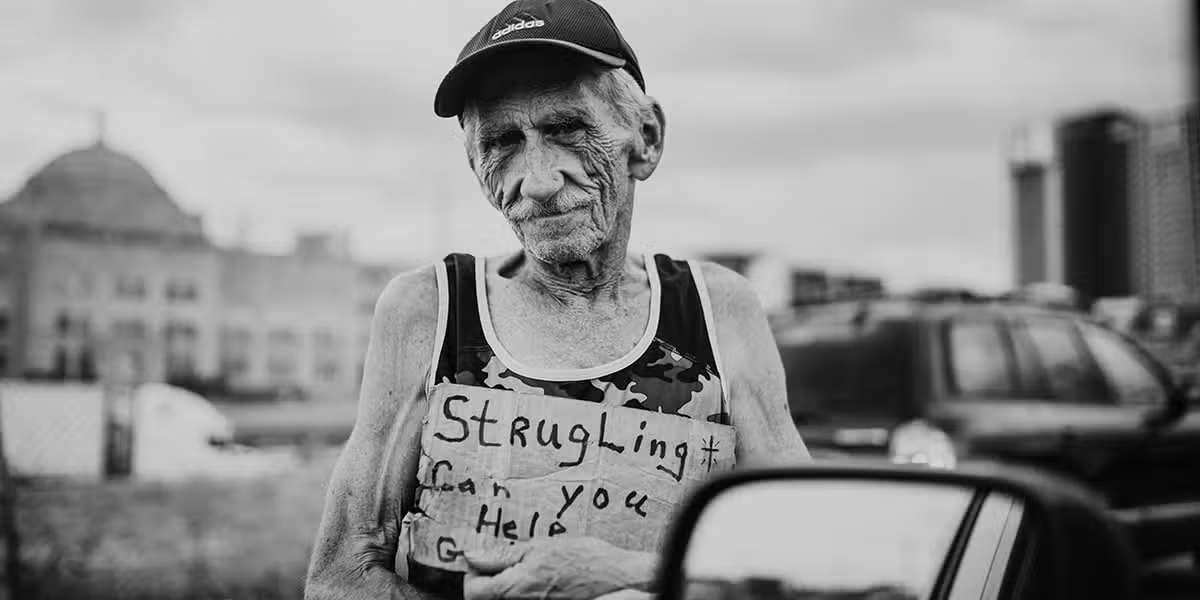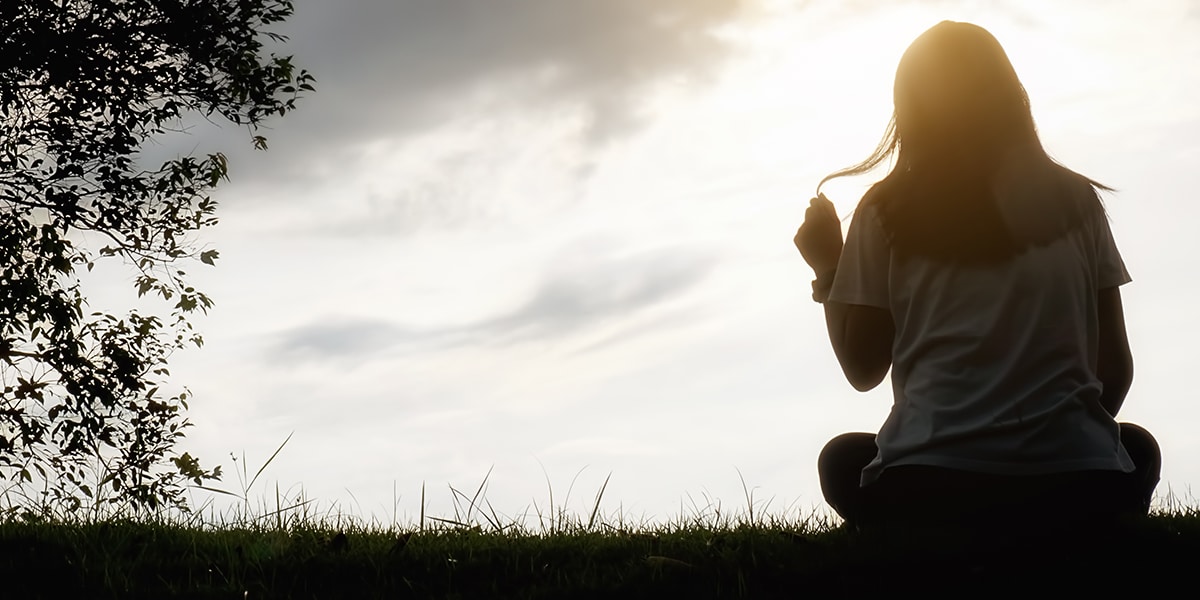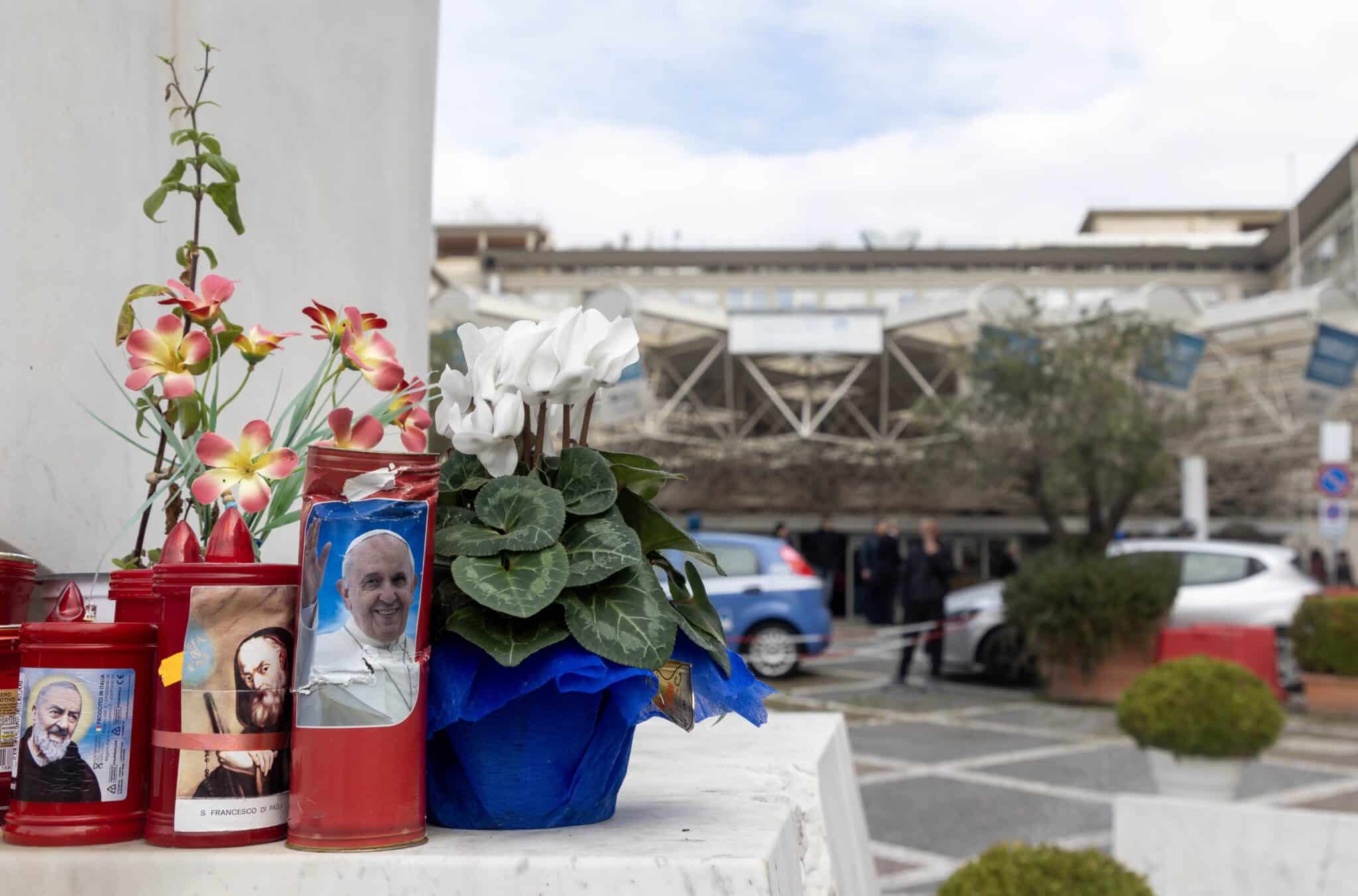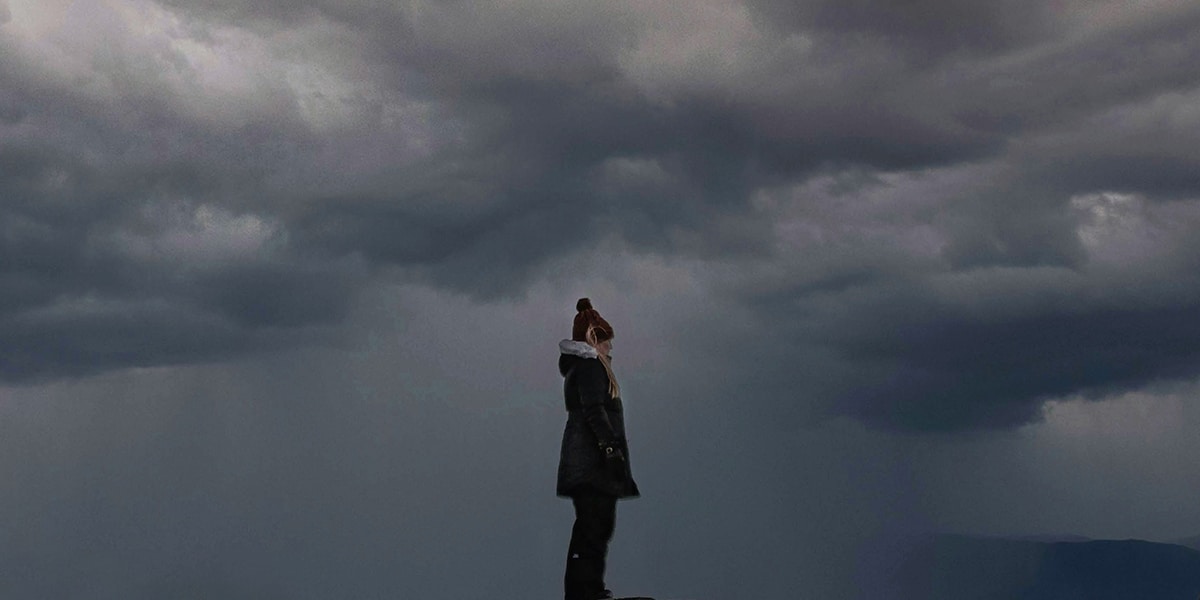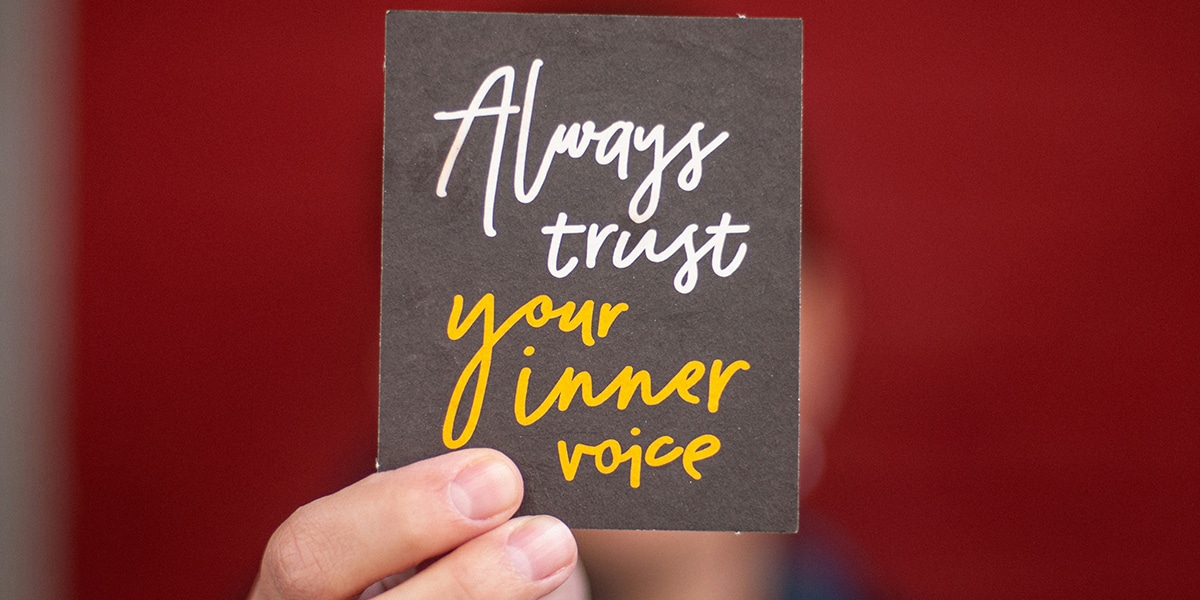The voice of Andrea Bocelli lifts up the new movie Fatima. But his talent is well grounded in faith.
For most Catholics, the story of Fatima is a familiar one. Beginning in May 1917, the Blessed Virgin Mary appeared to three children in Fatima, Portugal. The visions culminated in the “miracle of the sun ” in October of that year. The appearances of the mother of Jesus, under the title of Our Lady of Fatima, were deemed “worthy of belief” in 1930 by the bishop of Leiria-Fatima.
Pope Francis entrusted the world to Mary on March 11 this year at the start of the COVID-19 crisis. Now a new movie, Fatima, is scheduled to open August 28. This film focuses on peace, faith, and Mary’s motherly care for us.
The music for Fatima is by renowned Italian composer Paolo Buonvino, who composed the two original songs for the film, “Gratia Plena” and “Gloria,” and then asked world-famous tenor Andrea Bocelli to sing them. It is Bocelli’s first contribution to the soundtrack of a film.
I had the opportunity to interview Bocelli. His answers reflect a man of deep faith and love for Our Lady, the rosary, and the world.
Gratitude and Good Tidings
You sing two songs for the new film Fatima. What are your thoughts about Mary’s message of prayer and peace for us today?
The three shepherd children and sacred apparitions are surrounded by a powerful message of love. As Mary was for the children, she is for us an essential and constant presence in our daily lives. Her luminous presence is central, as she intercedes for us—this is a profoundly beautiful and distinct feature of Catholicism.
What did it mean to you to sing Paolo Buonvino’s “Gratia Plena” with children who sing in 12 languages?
It was a moving experience. Maestro Buonvino is a composer of great sensitivity. I remember when he composed “Gratia Plena,” he asked me to listen to it. I am grateful for his insistence: This is a deep, inspired song of genuine beauty, a perfect match to the two musical pieces [taken from the album Sì] featured in the film.
The second song, “Gloria,” is filled with human reality, grace, and gratitude. What does this song mean to you, and how can it inspire people?
Gratitude is indeed at the heart of this musical piece. The first part is contemplative, reminding us of the miracle of existence and of what an immense gift life is. The refrain evokes, in a graceful and joyful way, a luminous mantra: The word Gloria represents a celebration, prayer, and festive announcement of good tidings. The verses encourage a reflection on the beauty and preciousness of life itself, including the pain and tears we shed; on our time on earth; and on the eternal time where Mary awaits us like a loving mother.
You were close to St. John Paul II, and you seem to have a special connection to Pope Francis. Can you talk about what Pope Francis and his pastoral agenda mean to you? What hopes for the world do you share?
I greatly admire his desire to reestablish the core, founding values of the Church. I believe Pope Francis is a blessing for all of us, a true giant, eager to dedicate himself to others without any reservations and with immense greatness. He is a man of goodwill, capable of simple and profound words. [He is] a man of God [and a] source of hope and inspiration for us all.
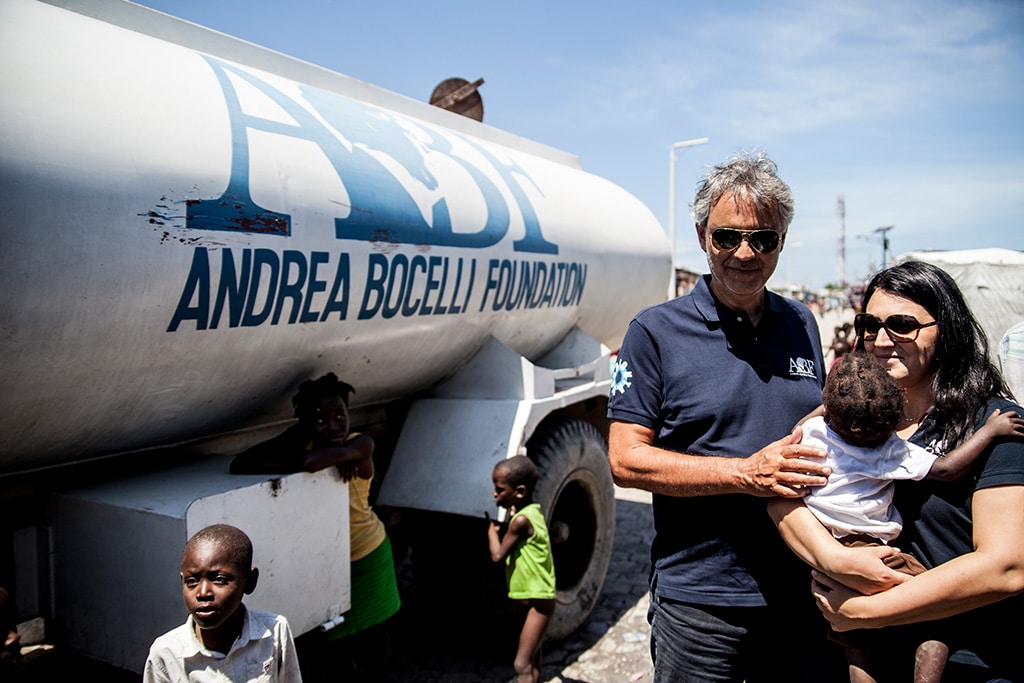
The Universal Language
What inspired you to create the Andrea Bocelli Foundation [ABF]? What do you hope to achieve with the work of the foundation?
The Andrea Bocelli Foundation [AndreaBocelliFoundation.org] was established in 2011 by myself and my family to give back after being inspired by the love and positivity received from fans and other partners from around the world. I am proud that the foundation has since grown into an independent nonprofit led by world-class professionals who oversee the development of projects in Italy and abroad.
The foundation’s primary mission is to empower people and communities in situations of poverty and social exclusion through projects that promote the overcoming of these barriers. Our hope is that our beneficiaries are enabled to express their full potential.
Since its inception, ABF has raised over 30 million euros [about $34 million], resulting in key initiatives such as the construction of eight schools in Italy and Haiti that offer daily access to a world-class education to over 3,000 students.
How important is it for children to sing, to be introduced to music at an early age?
When rooted in the core principles of respecting others and transmitting positive values, education through music and song is an incredibly effective answer. It can be the seed for a journey leading toward a powerful path of self-awareness, transforming both ourselves and our community. This is exactly why many of ABF’s projects are focused on using music education as a tool for empowerment.
The foundation has, in fact, developed innovative music education methodologies, which have been proven to be very effective in the development of the young [people] we work with. This programming is currently being advanced even further, thanks to the second phase of ABF’s COVID-19 fundraiser, which aims to create innovative distance-learning platforms to help youth everywhere gain access to quality education.
How would you explain what music does for the human heart and soul?
Music is like a dear friend, one that never leaves your side. It is a universal language with the strength and ability to affect our conscience, helping us to be better. Music is also a source of spiritual enrichment, which is why knowing its language can be useful for everyone, not just for those wanting to make it a profession.
When music embraces beauty, it soothes us, makes us grow, heals us by directing us toward rectitude. It can also lead us toward a fuller mystical experience.
There are three children in the film, and you have three children. What do you think the role of faith is in raising healthy, well-adjusted children who care about God and others?
Faith is what my life revolves around, a gift that I try to cherish and nurture, a daily source of support. Transmitting it to my children has always been a priority, inspiring them by example. I believe faith should be a crucial aspect in everyone’s life, and I am happy to inspire others each time the opportunity arises. I am deeply thankful to my parents—and to the community I have been a part of for many years—who taught me honesty, sacrifice, beauty, optimism. From them, I also learned the importance of respecting others and nature. Their teachings guided me throughout life like a beacon. I am now responsible for passing those same Christian values on to my children.
Signs of Faith and Hope
Do you have a special prayer that you pray every day?
I have an intense and daily relationship with prayer. I believe it represents a powerful, continuous renewal of our life. Faith is not something we can take for granted: Like any other discipline, it requires commitment, perseverance, sacrifice. To grow and nurture our faith, we need to comply with very simple practices. We need to “bend” toward praying, quite literally.
What is the role of the Madonna in your spiritual life? Does the rosary have a special meaning for you?
Reciting the holy rosary is one of the most intense moments of the day. This devotional practice opens up a path full of discoveries, both personal and extraordinary. As I mentioned, I believe prayer is a fundamental aspect of a path of faith, representing a source of constant renewal in the life of those who practice it. I am devoted to Our Lady and dedicate part of my prayers to her. I visited Lourdes as a child and recently went on pilgrimages to Medjugorje. The Virgin Mary is a constant and solar presence in my family’s life and mine.
What role does God play in your artistic life? Your daily life?
All human talents are gifts from God. I do not hold any personal merit for having a voice with a pleasant and recognizable timbre. . . . Heavenly gifts are meant to bring beauty and joy to the world. That is, unless humans decide to make an improper or incorrect use of such gifts, out of their own free will, which is the first and most precious gift of all. I have always trusted the divine will, committing myself with total confidence in his plans.
Your “Music for Hope” concert at Easter, sung live from the Duomo in Milan, included “Amazing Grace.” Why did you choose this song?
Although this song is not tied to Catholicism, I am very attached to it. I liked the idea of sharing this 18th-century Christian thanksgiving hymn (inspired by the conversion of its author). It is a classic, and its powerful melody can move us deeply.
What do you hope the audience will take away from the film [Fatima]?
I believe this is a foundational and universal story, even for those who don’t share the gift of faith. The message of love surrounding the three shepherd children, the sacred apparitions, and the Sanctuary of Fatima is accessible to ev-eryone: Love and beauty are inherent in all of what is good. I hope the film will inspire those who have faith toward embracing their relationship with God more fully and unconditionally. This will keep them away from the trap of indifference, a problem that, at least where I come from, needs attention. The holy Scriptures have strong things to say about firmly condemning those who are tepid and half-hearted in their faith.
If you have one wish, one prayer, for the world right now, what would it be?
We are all invited to contribute, making the world we inhabit a better place. Everyone can do their part, using the tools they have and the talents they received from God. I believe the vast majority of people want peace, believe in nonviolence, and should be allowed to live with dignity, reaching their full potential. Tangible actions are crucial to translate hope into actual change. I trust we can all make a difference by offering our small—yet irreplaceable—contribution, allowing beauty and goodness to triumph.
My wish and main prayer for the world is that of peace and global repudiation of war. Peace is the most simple and immediate thing humans should strive for. However, it is often undermined by the mystery hiding behind conflicts and disputes. This is a mystery because conflict is clearly an intellectual error that unfortunately people can’t seem to understand. No matter how intelligent, people are not able to overcome this obstacle. I am optimistic, though, and I hope it will happen soon.
Fatima: The Movie
The story opens in the late 1980s with an American author, Professor Nichols (Harvey Keitel), arriving at the cloistered Carmelite convent in Coimbra where Sister Lucia lives. He knows about the apparitions at Fatima and wants to talk with her about his doubts and her faith regarding them. To his questions, she finally responds with spirit, “I can only give you my testimony; I don’t have answers for everything.” Sonia Braga plays the role of the aging nun.
The story of the 1917 apparitions is then told through flashbacks. A “lady more brilliant than the sun” with a rosary in her hand appears to Lucia dos Santos (Stephanie Gil) and her younger cousins Francisco (Jorge Lamelas) and Jacinta Marto (Alejandra Howard). The children must overcome many challenges and obstacles to keep their promise to the Lady to pray the rosary and meet her every month.
There is a subtle rivalry between two mothers, the Virgin Mary (Joana Ribeiro) and Lucia’s mother, Maria Rosa dos Santos (Lucia Moniz). Lucia is caught between them. The children had promised one another that they would keep the Lady’s appearance a secret, but Jacinta lets it out and it gets back to Maria Rosa. She is a strong and proud woman but very anxious because of the war. She insists that Lucia stop this nonsense that is sure to draw the attention of neighbors and maybe the antireligious civil authorities. Over the course of the film, Lucia finds a way to obey these two compelling women in her life.
Another conflict occurs between the aggressive, atheistic authorities ruling Portugal at the time and the faith of the crowds that grew to 70,000 to witness what would become known as “the miracle of the sun.” Artur Santos (Goran Visnjic), the mayor and provincial administrator, is an atheist caught between his wife’s faith and maintaining his authority in front of his superiors. The film’s color cinematography gives it a historical look, using some sepia tinting at the beginning. It was shot mostly in Portugal, and the terrain resembles the hardscrabble rural landscape of the time.
Marco Pontecorvo directs Fatima. He also cowrote it along with Valerio D’Annunzio and Barbara Nicolosi. Nicolosi says: “I asked myself, Why did Mary come? The only answer is because this is what a mother would do.
“When I first started writing,” she continues, “I told the producers, ‘Let’s make this about motherhood.’ There is this little girl (Lucia), with a mother distracted by war, and Lucia realizes she will become a mother too. When she’s looking out over the crowd on that day of the miracle of the sun, she has become the mother of the world, called to take on a pastoral motherhood.”
For more about the film, visit FatimatheMovie.com.


